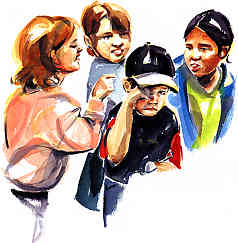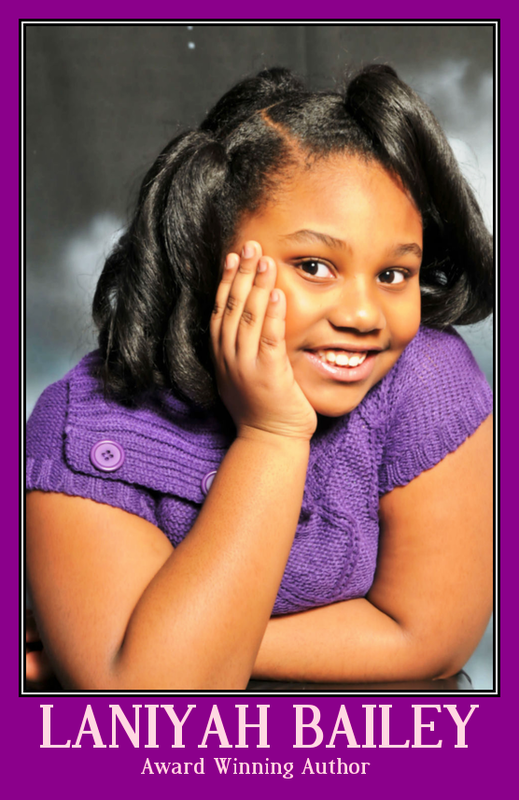In recent news kids all over who are considered "different" by their peers have been getting bullied, taunted, beat-up and tormented. What would you do if your child was indeed the "bully"?
I'd like to share an article I recently read that can help you identify a bully. Hope this makes you think!
I'd like to share an article I recently read that can help you identify a bully. Hope this makes you think!

Where do mean children come from? Could one be growing in my household? How about yours? Could your child be a bully?
Now I suspect most parents would never consider their own child as a mildly mean spirited or downright vicious bully. After all, or intuitive focus is on our kid’s strengths and good character. But as I heard about the disturbing stories outlined above, I asked myself “where were these kid’s parents?” “Why weren’t they doing anything to stop the bullying?” Then it hit me! Perhaps they didn’t know.
I started to wonder about the parents of the teens currently under prosecution for bullying Phoebe Prince to the breaking point when she committing suicide. Did these parents know their kids were bullies? Now that their kids risk juvenile court for “criminal” activity, I bet these parents would give anything for a chance to go back in time and be better aware. I for one never want to be in their shoes. I want to take steps to make sure my child doesn’t come close to being a bully.
When we think of bully, we usually think of the extreme type. Sometimes, however children can be a mild version of a bully without even knowing it. For example, name calling, spreading rumors, and hiding another child’s belongings are types of bullying. Racial, religious, and cultural mocking even if done innocently are qualifiers as well. A child, who does this anonymously, behind the security blanket of computer screens or phone text messages, might be guilty of cyber bullying. And “guilty by association” bullying is easy to do by laughing along with a crowd that is poking fun at someone.The list of minor or extreme offenses can go on and on.
Parents who play the role of detective by asking open ended questions are able to find out more about their children’s level of involvement in potential bullying. Here are some questions that help to get dialogue started.
Though these questions or ideas may seem basic, they have the potential to save an innocent victim from emotional or physical trauma. They also have the potential to keep your child from partaking in hurtful behavior and the risk of getting into trouble. Ultimately, constant vigilance from parents in the form of monitoring children, and creating dialogue help.
Reader comments are appreciated. Pleasantly toned comments (even if you disagree) are cherished! Please leave your comments and helpful suggestions.
Keyuri Joshi RN, MSN, is a Certified Parenting and Emotional Intelligence Coach
On the Ball Life & Parent Coaching
www.ontheballparent.com
www.ontheballparent.com/blog
Now I suspect most parents would never consider their own child as a mildly mean spirited or downright vicious bully. After all, or intuitive focus is on our kid’s strengths and good character. But as I heard about the disturbing stories outlined above, I asked myself “where were these kid’s parents?” “Why weren’t they doing anything to stop the bullying?” Then it hit me! Perhaps they didn’t know.
I started to wonder about the parents of the teens currently under prosecution for bullying Phoebe Prince to the breaking point when she committing suicide. Did these parents know their kids were bullies? Now that their kids risk juvenile court for “criminal” activity, I bet these parents would give anything for a chance to go back in time and be better aware. I for one never want to be in their shoes. I want to take steps to make sure my child doesn’t come close to being a bully.
When we think of bully, we usually think of the extreme type. Sometimes, however children can be a mild version of a bully without even knowing it. For example, name calling, spreading rumors, and hiding another child’s belongings are types of bullying. Racial, religious, and cultural mocking even if done innocently are qualifiers as well. A child, who does this anonymously, behind the security blanket of computer screens or phone text messages, might be guilty of cyber bullying. And “guilty by association” bullying is easy to do by laughing along with a crowd that is poking fun at someone.The list of minor or extreme offenses can go on and on.
Parents who play the role of detective by asking open ended questions are able to find out more about their children’s level of involvement in potential bullying. Here are some questions that help to get dialogue started.
- What happens on a typical school bus ride to school and from school?
- Who are the kids that got in trouble on the bus or at school this week? Why did they get in trouble? What kind of association, if any, do you have with these kids?
- How can you avoid “guilty by association” bullying?
- How do you feel when you see someone bullied? This is an important question in which parents can assess the level of empathy in their child. Most researchers believe that empathy can be cultivated. For an excellent poem that can help to do this, refer to How Parenting With Emotional Intelligence can Weaken Bullying.
- What do you do when bullying occurs? Why?
- What’s your definition of bullying? Here, parents have an opportunity to educate their child on types of bullying that the child may not be aware of.
- If you were a Superhero, what would you do to stop bullying? How can you implement some of those ideas as just a “regular” kid?
Though these questions or ideas may seem basic, they have the potential to save an innocent victim from emotional or physical trauma. They also have the potential to keep your child from partaking in hurtful behavior and the risk of getting into trouble. Ultimately, constant vigilance from parents in the form of monitoring children, and creating dialogue help.
Reader comments are appreciated. Pleasantly toned comments (even if you disagree) are cherished! Please leave your comments and helpful suggestions.
Keyuri Joshi RN, MSN, is a Certified Parenting and Emotional Intelligence Coach
On the Ball Life & Parent Coaching
www.ontheballparent.com
www.ontheballparent.com/blog

 RSS Feed
RSS Feed

